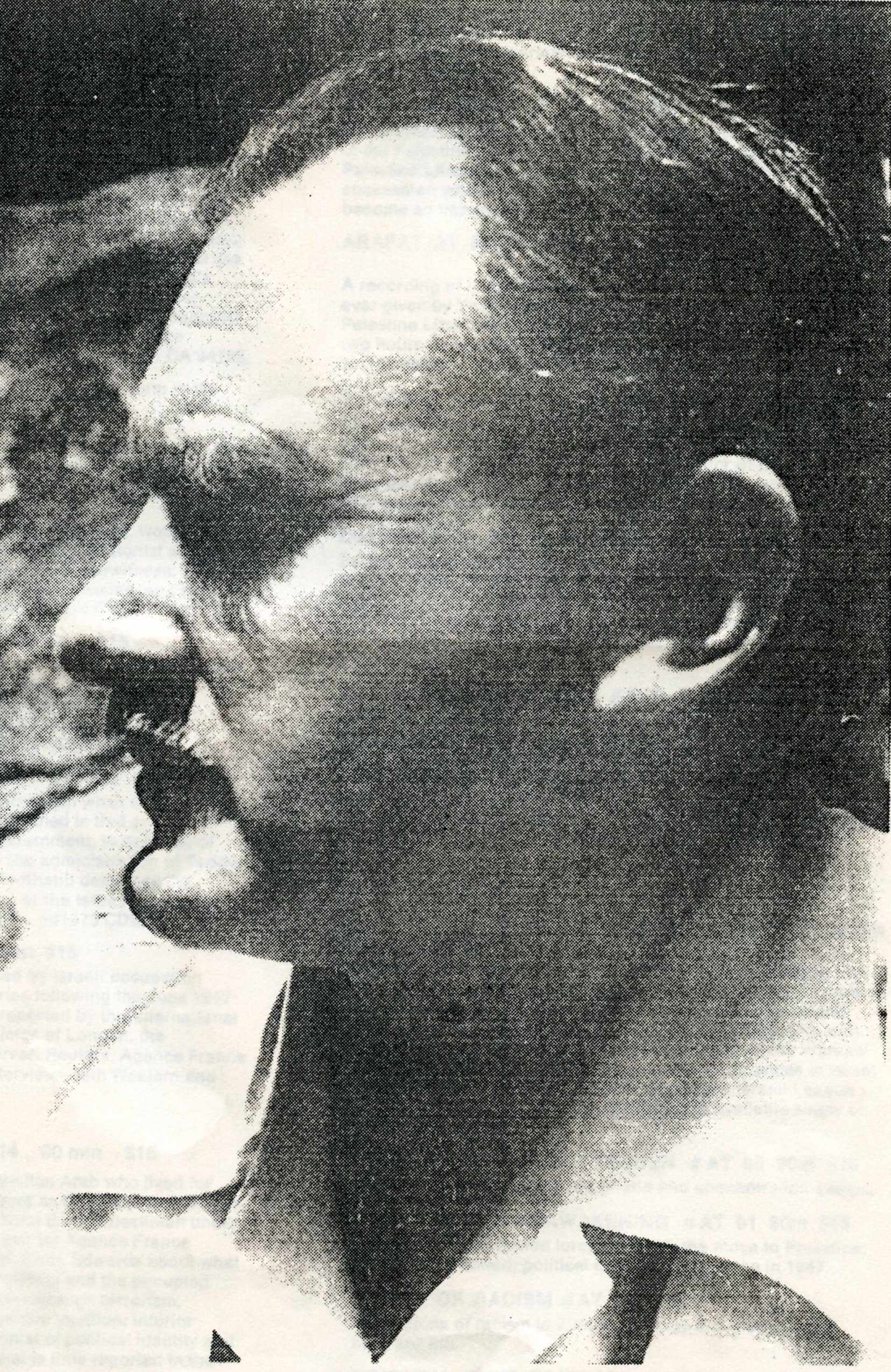Independent Collections
These collections were produced by independent journalists. Many of these recordings make up the bulk of the original collection of the Freedom Archives.
Subcollections
-
Colin Edwards Collection
Materials representing the life-work and journalism of a Welsh radio correspondent and journalist who worked for Pacifica stations, the BBC and many other broadcasters. -
Colin Edwards Free Speech Movement
This collection is produced by journalist Colin Edwards and represent a comprehensive account of the Free Speech Movement and its effect on the political climate of UC Berkeley. -
Programs produced by Kiilu Nyasha
Kiilu Nyasha is a revolutionary journalist and former member of the Black Panther Party. Kiilu still hosts Freedom Is A Constant Struggle, which now appears as a TV program. -
“Nothing is More Precious Than…” a news magazine including music and poetry
KPFA weekly news program running from 1973-1976 featuring in-depth coverage of liberation struggles around the world. -
“The Real Dragon” a news magazine including music and poetry
Real Dragon was a radio program broadcast on KPFA from 1971-1973. This news show focused on issues of national liberation, political prisoners, Vietnam and other major national and international topics.
Documents
Date: 10/29/1966Call Number: CE 044Format: 1/4 7 1/2 ipsProducers: Colin EdwardsCollection: Colin Edwards Collection
Colin Edwards interviews Carmichael in the SF offices of the Movement Newspaper (Friends of SNCC). In depth about his political development, involvement with SNCC, relationship between white militants and Black Liberation Movement, demands for Black Power, and support for Vietnam's national liberation.
Date: 10/29/1966Call Number: CE 045Format: 1/4 7 1/2 ipsProducers: Colin EdwardsCollection: Colin Edwards Collection
Colin Edwards interviews Carmichael in the SF offices of the Movement Newspaper (Friends of SNCC). In depth about his political development, involvement with SNCC, relationship between white militants and Black Liberation Movement, demands for Black Power, and support for Vietnam's national liberation.
Date: 10/29/1966Call Number: CE 046Format: 1/4 3 3/4 ipsProducers: Colin EdwardsCollection: Colin Edwards Collection
Speakers include Ivanhoe Donaldson - NY Director of SNCC, Brother Lennie - Community Alert Program of LA, Ron Karenga - Watts, and Stokely Carmichael. Seminal speech by Carmichael on Black Power and SNCC.
(slight loss at reel change)
Date: 4/12/1968Call Number: CE 047Format: 1/4 7 1/2 ipsProducers: Colin EdwardsCollection: Colin Edwards Collection
Conference followed the funeral of Bobby Hutton, 17-year old treasurer of the Black Panther Party, unarmed and slain by Oakland Police April 6, 1968. Also includes Peace and Freedom Party Rally after the funeral. Speakers include actor Marlon Brando, Panthers Bobby Seale, Kathleen Cleaver and George Murray, Kenneth Denmon and Bob Avakian (P&F), James Forman of SNCC, Louella Cleaver (Eldridge Cleaver's sister - Eldridge and Warren Wells were shot and wounded in the same police attack).
Date: 10/29/1966Call Number: CE 061Format: 1/4 3 3/4 ipsProducers: Colin EdwardsCollection: Colin Edwards Collection
James Shaw - San Jose SNCC introduction to Reverend James Bevel - an original Freedom Rider & with the Chicago Direct Action Movement. Bevel discusses Black Power & non-violence, organizing to overcome tyranny and slavery and the inhumanity of western capitalism.
Date: 10/29/1966Call Number: CE 062Format: 1/4 3 3/4 ipsProducers: Colin EdwardsCollection: Colin Edwards Collection
Damay Grey, poet Austin Black and Lou Gothard from Los Angeles. Later Elijah Turner takes some questions. Statements by Mike Smith and Mike Parker of SDS.
SNCC leaders address a New York crowd about Black Power and Vietnam.
Call Number: CE 499Format: 1/4 7 1/2 ipsProducers: Collin EdwardsCollection: Colin Edwards Collection
Staughton Lynd discusses the origins of SNCC, the formation of Freedom Schools in the South and the continued fight for Civil Rights under the new Black Power Movement.
Call Number: CE 500Format: 1/4 7 1/2 ipsProducers: Collin EdwardsCollection: Colin Edwards Collection
Lynd discusses what the shift in Black Power meant for SNCC’s administrative organization and the New Left in relation to Civil Rights. Additionally, Lynd discusses Black education further in terms of the creation of Free Schools and the value and productivity of Teach-Ins.
Robert Zellner, the first white staff member of SNCC and wife Dorothy Zellner discuss their motivations behind their involvement with SNCC as well as social and political atmosphere of the South during the Civil Rights Movement. Additionally, the Zellners discuss the power of sit-ins and protest and the necessity of the consciousness generated to inspire and renew the drive towards social change.






